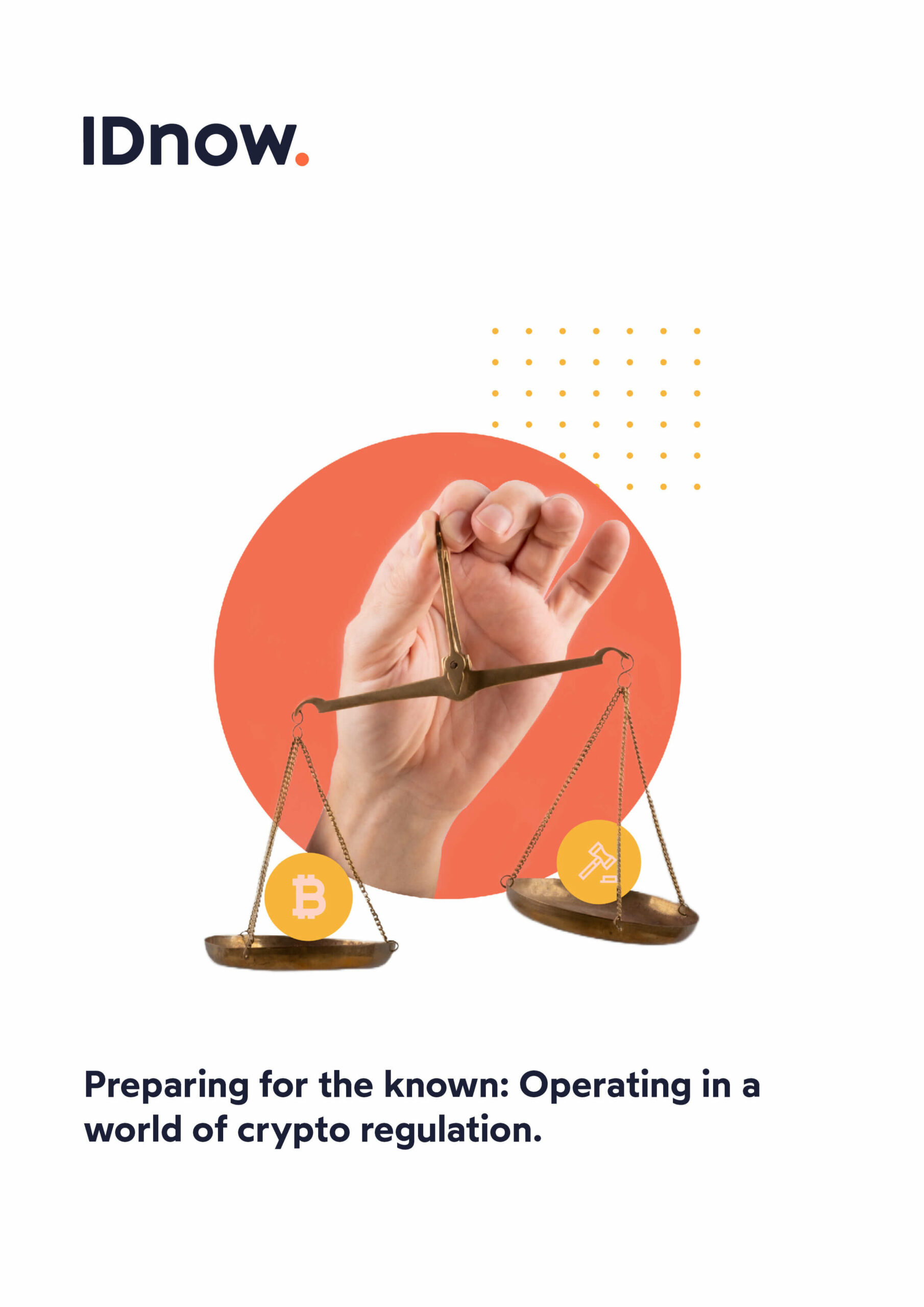Confused over which crypto regulations are applicable in the UK? Read on to discover all about the Travel Rule, MiCA, and the UK’s proposed regulatory regime.
The release of the UK government’s ‘Future financial services regulatory regime for crypto assets: Response to the consultation and call for evidence’ signifies yet another significant step on the UK’s road toward crypto regulation.
In February 2023, in perhaps the clearest sign to date that the UK government was finally taking the challenges and opportunities of the crypto industry seriously, HM Treasury released a consultation paper on the proposed regulatory regime, which is billed by many as the UK’s answer to MiCA.
The 77-page document featured information on the current regulatory landscape for cryptoassets, definitions of different types of cryptoassets, and geographic scope of cryptoasset activities.
As well as more general guidelines regarding cryptoasset investment advice and portfolio management, the paper set out a proposed policy approach to bringing cryptoasset activities into the UK regulatory perimeter.
Call for evidence on UK’s proposed crypto regulatory regime.
From February to the end of April 2023, the public and private sector, and those inside and outside Parliament were invited to provide feedback on the proposed policies and legislations. IDnow’s crypto regulatory experts, Rayissa Armata and Jason Tucker-Feltham pored over the consultation paper, and along with 130 other respondents and institutions, provided detailed feedback and analysis.
In October 2023 HM Treasury published its response to the consultation. In the foreword, Andrew Griffith MP, Economic Secretary to the Treasury said:
The learnings gathered from our engagement have been invaluable for further informing our approach. With the future regulatory framework now taking clear shape and the Financial Services and Markets Act now passed, the UK is the obvious choice for starting and scaling a crypto asset business.
Andrew Griffith MP, Economic Secretary to the Treasury.
While the vast majority (80%) of respondents were positive about the proposals, 10% had mixed feedback, and 10% were “largely critical” about the proposals. The main objections were from those who fundamentally disagreed with bringing cryptoassets within the financial services’ regulatory perimeter. Objections fell into three camps: crypto should be banned; crypto should treated in line with gambling regulation; crypto should be regulated on assets, not activities.
Feedback on UK’s proposed crypto regulations.
Feedback was collected from a mixture of industry associations, crypto native firms and FinTechs, legal and consulting firms, traditional financial services, and members of public and academia. Twenty themes and topics were identified that need to be addressed:
1. Non-Fungible Tokens (NFT) & utility tokens
Clarify proposed treatment of NFTs and utility tokens – especially on what constitutes a financial services use case.
2. Geographic scope
Give further consideration to the treatment of overseas firms, including making clear the applicability (or not) of the Overseas Persons Exclusion (OPE), reverse solicitation, and intra-group exemptions.
3. Phase 1 vs phase 2
Delineate phase 1 and phase 2 activities in more detail, and give further consideration to potential challenges for firms and consumers.
4. Wholesale vs retail
Make stronger distinctions between services provided to professional / sophisticated investors versus retail consumers (e.g. lending, venue disclosures).
5. Timelines
Provide more clarity on timelines for phase 1 and phase 2, and seek to accelerate the overall implementation programme.
6. Security tokens
Make clear the proposed treatment of security tokens, and ensure overlapping regimes are avoided (e.g. through an explicit carve-out).
7. Token scope
Ensure cryptoasset definition used in secondary legislation is not too broad (e.g. make sure it excludes e-money, loyalty schemes, in-game money),
8. Staking
Provide clarity on the definition and future treatment of staking and consider accelerating legislation process. Consider carve-out from the scope of the collective investment scheme (CIS) regime.
9. Disclosures liability
Ensure liability framework for disclosures is proportionate –especially for tokens without an identifiable issuer.
10. Market abuse (cross-venue)
Consider a phased implementation approach toward market abuse surveillance obligations, recognizing issues associated with cross-venue information sharing.
11. FSMA authorization process
Streamline authorization process – in particular, consider appropriate transition pathways for firms registered with the FCA under its AML regime and/or already authorised under Part 4A of the Financial Services and Markets Act 2000 (FSMA).
12. Custody scope
Clarify definition and scope for future regulated cryptoasset custody activities, especially with regards to self-hosted wallets and third-party arrangements.
13. Investment advice
Reconsider sequencing of cryptoasset investment advice and portfolio management activities, and ensure these are included in the perimeter.
14. SMEs
Take steps to minimize barriers to entry for smaller firms – e.g. through careful design of prudential requirements and issuance requirements.
15. Cross-border enforcement
Clarify how cross-border enforcement can work in practice to ensure fair and level playing field for UK-regulated firms.
16. Permissionless blockchains
Ensure the regulatory framework appropriately reflects the risks associated with permissionless (public) vs permissioned (private) blockchains.
17. Trading platform scope
Clarify definition and scope for future regulated trading platform activities, e.g. with regards to airdrops and decentralized exchanges.
18. Banning crypto
Ban certain cryptoassets from retail consumer use – or treat them akin to gambling rather than bringing them into the financial services regulatory perimeter.
19. Transitional disclosure arrangements
Consider transitional disclosure arrangements for well-established tokens (e.g. Bitcoin) to differentiate them from recently issued tokens.
20. International coordination on DeFi
Avoid front-running international work on DeFi by imposing a prescriptive domestic framework.
In light of the above, HM Treasury has pledged it will be setting out ‘modifications’ to the original proposals to provide further clarity on key areas of interest. The government’s aim is for secondary legislation to be laid in 2024, subject to Parliamentary time.
“It is important that the regime’s credibility be seen as robust rather than light touch, so I welcome the decision by the UK government to take the feedback from invested parties very seriously,” said Jason Tucker-Feltham, Head of FinTech and Crypto at IDnow.
A balanced and well thought out regulatory framework will likely lay the foundations in support of the UK becoming a major global crypto hub. The latest developments are music to the ears of traditional financial institutions, as clear rules for conducting crypto business in and out of the UK provides a level of certainty not yet demonstrated by the jurisdiction.
Jason Tucker-Feltham, Head of FinTech and Crypto at IDnow.
What should crypto firms do while they await crypto regulations?
While firms await rules outlined in the UK’s proposed crypto regulatory regime, crypto firms that wish to operate in the UK must register with the Financial Conduct Authority (FCA), and therefore comply with the Money Laundering, Terrorist Financing, and Transfer of Funds Regulations 2017 (including the FATF guideline amendments). Only firms with appropriate Know Your Customer (KYC) processes, source of funds checks, and proof of funds checks, can be registered to ensure no illicit money is coming through the system.
At the beginning of 2023, out of 300 applications to the FCA, only 41 had become registered. FCA spokesperson, Charles Randell, Chair of the FCA and PSR said that more than 80% of crypto firms that had begun the process to become registered had either withdrawn their applications or been rejected. The most common reasons for not passing were that they did not meet the required AML standards.
Despite the UK no longer being legally required to follow the rules outlined in the EU’s Fifth Anti-Money Laundering Directive (5AMLD), the UK did decide to transpose the cryptocurrency regulation criteria from 5AMLD and 6AMLD into domestic legislation. Other relevant rules include the Financial Promotions Regime, which is currently under consultation, and the Financial Services and Markets Bill, which includes stablecoin regulation.
In October 2023, the FCA officially launched its financial promotions restrictions for the UK’s crypto industry. Read more about the UK’s financial promotions regime here.
What is the UK’s ‘Travel Rule’?
From September 1, 2023, crypto firms operating in the UK will be required to store, verify, and share all information regarding crypto transfers, as per the ‘Travel Rule’.
Although well established among traditional financial service providers, the Travel Rule was extended to incorporate crypto activities in the revised Transfer of Funds regulation, which alongside MiCA, was officially officially published in the European Official Journal on June 9, 2023.
The Financial Action Task Force (FATF), regarded as the global money laundering and terrorist financing watchdog, recently acknowledged the challenges associated with setting adoption and enforcement timelines across different juristictions and regions. Each FATF member state is currently madating travel rule compliance.
In the UK, the Financial Conduct Authority (FCA) has outlined what it expects from firms:
- Take all reasonable steps and exercise all due diligence to comply with the Travel Rule.
- Assume responsiblity for complying with the Travel Rule, even when using third-party suppliers.
- Comply with the Travel Rule when sending or receiving a crypto to a firm in any jurisdiction that has implemented the Travel Rule.
- Regularly review the implementation status of the Travel Rule in other jurisdictions and adapt business processes as appropriate.
Read more about the year that crypto would rather forget (2023) in our ‘Time to grow up? Crypto and fintechs rack up more AML fines than traditional financial services.’ blog.
Putting the KYC into crypto.
KYC processes are an integral part in ensuring crypto exchanges can protect themselves and their customers from fraud and money laundering, even amid an evolving crypto regulatory landscape. Having these controls in place will protect investors from financial losses and add stability to a notoriously volatile market.
IDnow’s highly configurable identity verification services work across multiple regulations, industries and use cases, including crypto. Whether automated or expert-assisted, its online identity-verification methods have been optimized to meet the strictest security standards and regulatory requirements without compromising on customer conversion or consumer experience.
For more information on what UK’s proposed crypto regulatory regime would look like, watch Jason Tucker-Feltham, Head of Crypto Sales at IDnow attempt to explain it – in 90 seconds or less.
By

Jody Houton
Senior Content Manager at IDnow
Connect with Jody on LinkedIn
Preparing for the known: Operating in a world of crypto regulation.





